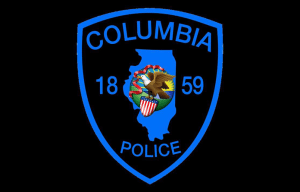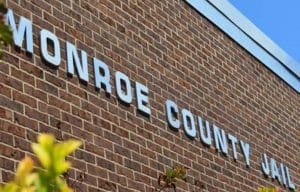Clearing up home rule in Columbia?
The City of Columbia and a group of realtors are headed for a showdown about the home rule referendum on the April 4 ballot.
A community meeting hosted by the Columbia Chamber of Commerce is set for 6:30-8 p.m. this Thursday, March 16, at Turner Hall, 211 E. Cherry Street.
The meeting is open to the public and will feature an examination of the pros and cons of adopting home rule presented by city officials as well as members of the Realtor Association of Southwestern Illinois.
Individuals from both groups hope to set the record straight about what would or could happen if voters decide to adopt home rule in Columbia.
At the beginning of the year, Columbia aldermen approved a resolution to pose the home rule question to voters as a way to “find local solutions to local problems.”
During recent council discussions and two town hall meetings, city officials have presented home rule authority as a method to fund needed projects and maintain city services without placing additional tax burdens solely on Columbia property owners.
Columbia City Administrator Doug Brimm outlined a way for the city to generate city income by implementing or raising several sales taxes with a goal of capturing revenue from non-residents who do business or shop in Columbia.
The main concern for the city has been a new sewage treatment plant with an estimated $25 million price tag. The plant will replace the city’s lagoon-style treatment facility and is mandated by the Illinois Environmental Protection Agency to be in place by 2035.
City officials contend home rule would be a “tool” which could provide additional funding needed for that project along with other major projects such as a water treatment plant and new public safety complex.
The main concern for the realtors association is the scope of taxing power the city would have if the home rule referendum passes.
Columbia residents recently received mailers from REALTORS In Opposition to Home Rule which claimed residents will be in danger of giving the city an unlimited ability to raise sales and property taxes.
Although aldermen passed a pre-emptive ordinance capping the city’s annual tax levy and setting a debt limit should the home rule referendum pass, opponents say the supermajority needed to overturn the restriction (six of eight votes) could easily be reached by a future city council.
Another piece of mail received recently by Columbia residents concerning home rule has also caused concern and generated questions.
During a February city council meeting, Ron Deedrick, government affairs director for Springfield-based Illinois REALTORS asked aldermen about a mailer describing “What home rule means for Columbia.”
The mailer contains the City of Columbia logo and a web address that takes residents to the city website. Deedrick pointed out it would be illegal to use city funds to campaign for a referendum.
While it was determined at the meeting that city funds were not used to send mail about the referendum, other questions about the city’s involvement with promoting the referendum – including use of its official website and social media platforms – led Mayor Bob Hill to release “An Open Letter to Columbia” on Monday.
In the letter, Hill discloses the source of funds for the mailer and explains the city’s intent with its “informational campaign” about home rule.
“Absolutely no taxpayer dollars have been, or will be used… All costs associated with providing factual information on how home rule may affect our community, including the mailers and videos appearing on city social media, have been paid by longtime Columbia philanthropist, Columbia business owner, and Columbia developer, Mr. Joe Koppeis and Admiral Parkway, Inc.,” the letter states.
“Home rule provides the city with an opportunity to secure Columbia’s future by promoting business, growth, and development while continuing to meet the needs of our residents and visitors … and will ultimately result in lower property taxes – from which (Koppeis) and every other property owner in Columbia will benefit,” the letter continues.
Hill’s letter also addresses the lack of a disclosure on the mailer which appeared to be from the City of Columbia.
The mail was made manifest through the “Columbia Home Rule Initiative Committee,” a ballot initiative committee registered with the Illinois State Board of Elections. Hill is named as the committee chair.
Hill argues the committee’s mailer is informational in nature and therefore does not require a disclaimer since it only encourages residents recipients to “get the facts” and “vote.”
On the other hand, the realtors’ brochure explicitly suggests recipients “vote no on home rule.”
Hill applies the same “informational” standard to communication found on the city’s website and Facebook page, thereby not subjecting the content to further election-related requirements.
Hill states in the letter “the formation of the Columbia Home Rule Initiative Committee was organized independent of the city in the spirit of utmost transparency – not out of any statutory obligation. Furthermore, mailings and videos… do not meet the four-part test found in the Illinois Election Code to be considered ‘electioneering communication.’”
Hill did take issue with some claims made by Illinois REALTORS, saying some of the statements are “verging on downright dishonest.”
He specifically refers in the letter to potential increases in property, grocery and motor fuel taxes.
In addressing claims of property tax hikes, Hill reiterated his promise to not increase property taxes regardless of home rule status. Furthermore, the city already has the ability to raise property taxes whether or not the referendum passes.
Additionally, since “real property” such as homes and land are not subject to sales tax, the proposed 1 percent home rule tax would not apply to those purchases, and a separate referendum would be necessary to increase the real estate transfer tax rate.
While home rule would allow Columbia to institute an additional motor fuel tax, city officials have already stated intentions to avoid such a tax – neighboring Missouri already has an advantage with its significantly lower fuel costs.
As far as groceries are concerned, the proposed “food and beverage tax” would only apply to items prepared for immediate consumption such as items purchased at a restaurant, amounting to around $1 for a $100 total bill.
Items at grocery stores currently classified as food and drink (which are already taxed at a separate rate), the proposed 1 percent home rule tax would not apply, although it would apply to non-grocery items purchased at a grocery store.
Those issues and more will be up for debate this Thursday at Turner Hall.
For more information about home rule or to ask a question to city officials through an online portal, visit columbiaconversations.com.






